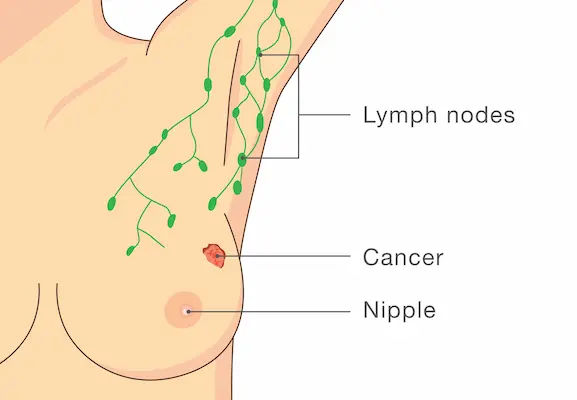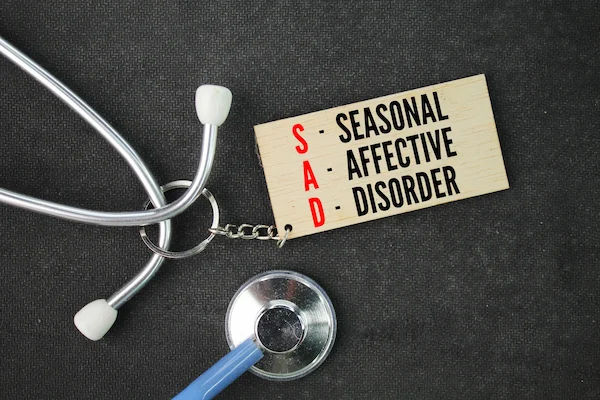Your Guide to Choosing the Right Medical Specialist
Confused about which doctor to see? Learn how to choose the right medical specialist based on your symptoms. From primary care to cardiologists, dermatologists, and more, this guide helps you find the right expert quickly and confidently.


Introduction
Navigating the healthcare system can feel overwhelming, especially when you're faced with a specific symptom and have no idea which category of doctor you need to see. Is it a dermatologist for that persistent rash, or should you start with your general physician? Choosing the right medical specialist is not just about convenience; it's crucial for receiving an accurate diagnosis and the most effective treatment plan. This guide is designed to demystify the world of medical specialties. We'll break down the major categories of doctors, explain what they do, and provide a clear, step-by-step process to help you confidently find the right expert for your health needs. Let's turn confusion into clarity and ensure you're on the fastest path to wellness.
Why Choosing the Right Doctor Category Matters
Selecting the appropriate type of medical specialist is the first critical step in your healthcare journey. It directly influences the efficiency and success of your treatment. Seeing the wrong specialist can lead to misdiagnosis, unnecessary tests, and delayed care, prolonging your discomfort and anxiety.
The Impact on Accurate Diagnosis
Every medical specialist has deep, focused training in a specific area of the body or a particular group of diseases. A cardiologist, for example, is adept at interpreting subtle signs of heart rhythm disorders that a general doctor might miss without specialized equipment. By going directly to the expert trained for your specific condition, you significantly increase the chances of a swift and accurate diagnosis. This precision saves valuable time and gets you started on the correct treatment path much sooner.
Receiving Specialized and Effective Treatment
Beyond diagnosis, specialist doctors are experts in the latest and most advanced treatment protocols within their field. An orthopedist will be knowledgeable about both surgical and newest non-invasive regenerative treatments for a joint injury. This expertise ensures you receive care that is not only correct but also cutting-edge and tailored to complex cases. For chronic conditions like autoimmune diseases, seeing a rheumatologist is essential for managing the illness with specialized medication and long-term monitoring plans.
Consult a Specialist for Personalised Advice
Major Categories of Medical Doctors
Understanding the landscape of medical specialties is key to making an informed choice. Doctors can be broadly divided into two groups: Primary Care Physicians (your healthcare home base) and Specialists (experts you are referred to).
Primary Care PhysiciansYour First Point of Contact
Think of your Primary Care Physician (PCP) as your medical home. They are trained to treat a wide range of conditions, provide preventive care, and manage your overall health. They are almost always the best starting point.
Family Medicine
These doctors provide comprehensive health care for individuals and families across all ages, from newborns to seniors. They treat acute and chronic illnesses and provide preventive care like vaccinations.
Internal Medicine (Internists):
Internists specialize in the prevention, diagnosis, and treatment of adult diseases. They are experts in managing complex multi-system diseases and are often the primary doctor for adults.
Pediatrics:
Pediatricians are dedicated to the physical, emotional, and social health of children from birth through young adulthood.
Common Types of Medical Specialists
When a condition requires expert attention, your PCP will refer you to a specialist. Here are some common ones:
Cardiologists (Heart)
They diagnose and treat diseases of the heart and blood vessels. See them for issues like chest pain, hypertension, heart palpitations, or after a heart attack.
Dermatologists (Skin, Hair, Nails):
If you have a persistent rash, acne, skin growths, or hair loss, a dermatologist is the right category of doctor to consult.
Orthopedists (Bones and Joints):
Specializing in the musculoskeletal system, they treat problems like fractures, arthritis, back pain, and sports injuries.
Gastroenterologists (Digestive System):
They manage diseases of the gastrointestinal tract, including the stomach, intestines, liver, and pancreas. See them for persistent heartburn, abdominal pain, or irregular bowel movements.
How to Choose the Right Specialist: A Step-by-Step Guide
If you're unsure how to find the right doctor for your condition, follow this simple process.
Step 1: Start with a Consultation with Your Primary Care Doctor
This is the most reliable method. Your PCP has a broad understanding of your overall health history. They can perform initial assessments, order basic tests, and based on the findings, provide a precise referral to the most appropriate specialist. If your symptoms are vague or you're unsure where to begin, consult a doctor online with Apollo24|7 for an initial evaluation and guidance on the next steps.
Step 2: Understand Your Specific Symptoms
Before your appointment, note down your symptoms: What are they? When did they start? What makes them better or worse? This detailed information helps both you and your doctor pinpoint the likely body system involved, narrowing down the types of medical specialists you might need.
Step 3: Verify Credentials and Experience
Once you have a specialist's name, verify their board certification. This ensures they have the necessary training, skills, and experience in that specialty. You can also look for doctors who have experience treating your specific condition, especially if it is rare or complex.
When to Seek Immediate Help: Navigating Emergency vs. Non-Urgent Care
It's vital to know which category of care facility to use. For life-threatening symptoms like chest pain, difficulty breathing, severe bleeding, or sudden weakness, go to the Emergency Room (ER) immediately. For non-urgent but concerning issues that arise after hours, like a UTI or severe sprain, a teleconsultation or urgent care clinic is a faster and more appropriate choice than the ER. If your condition does not improve after trying initial home care methods, book a physical visit to a doctor with Apollo24|7 to get a professional diagnosis and treatment plan.
Conclusion
Choosing the right category of medical professional is a fundamental skill in managing your health effectively. It streamlines your path to care, ensures you benefit from expert knowledge, and ultimately leads to better health outcomes. Remember, you don't need to have all the answers yourself. Start with your primary care doctor, who can serve as your guide and navigator through the healthcare system. By understanding the different roles and following a logical process, you can advocate for yourself and your family with confidence. Take the first step today—if you have a lingering health issue, make that appointment with your PCP or consult a doctor online with Apollo24|7 to get started on the path to feeling better.
Consult a Specialist for Personalised Advice
Consult a Specialist for Personalised Advice

Dr. Mainak Baksi
General Practitioner
13 Years • MBBS , MD (MPH)
Howrah
Mainak Baksi Clinic, Howrah
(50+ Patients)

Dr. Siri Nallapu
General Practitioner
5 Years • MBBS
Hyderabad
Apollo 24|7 Clinic, Hyderabad

Dr. Rajib Ghose
General Physician/ Internal Medicine Specialist
25 Years • MBBS
East Midnapore
VIVEKANANDA SEBA SADAN, East Midnapore

Dr. Rajesh R
General Practitioner
24 Years • MBBS
Bengaluru
Maruti Polyclinic and dental care, Bengaluru

Dr Churchil Gupta
General Practitioner
2 Years • MBBS
Greater Noida
Vedant Clinic, Greater Noida
Consult a Specialist for Personalised Advice

Dr. Mainak Baksi
General Practitioner
13 Years • MBBS , MD (MPH)
Howrah
Mainak Baksi Clinic, Howrah
(50+ Patients)

Dr. Siri Nallapu
General Practitioner
5 Years • MBBS
Hyderabad
Apollo 24|7 Clinic, Hyderabad

Dr. Rajib Ghose
General Physician/ Internal Medicine Specialist
25 Years • MBBS
East Midnapore
VIVEKANANDA SEBA SADAN, East Midnapore

Dr. Rajesh R
General Practitioner
24 Years • MBBS
Bengaluru
Maruti Polyclinic and dental care, Bengaluru

Dr Churchil Gupta
General Practitioner
2 Years • MBBS
Greater Noida
Vedant Clinic, Greater Noida
More articles from General Medical Consultation
Frequently Asked Questions
What is the difference between a gastroenterologist and a proctologist?
A gastroenterologist treats the entire digestive system, from the esophagus to the colon. A proctologist (often now called a colorectal surgeon) is a surgical specialist focused specifically on disorders of the rectum, anus, and colon. Your gastroenterologist would refer you to a proctologist if a surgical issue was identified.
Do I always need a referral from my primary doctor to see a specialist?
This depends entirely on your health insurance plan. Some plans (like HMOs) require a referral for the visit to be covered, while others (like PPOs) may allow you to schedule directly with an in-network specialist without one. Always check with your insurance provider first.
What kind of doctor should I see for ongoing fatigue and body aches?
This is a perfect example of when to start with your Primary Care Physician. Fatigue and body aches can be symptoms of many different conditions (from vitamin deficiencies to thyroid issues or chronic fatigue syndrome). Your PCP can run initial blood tests (Apollo24|7 offers convenient home collection for tests like vitamin D or HbA1c) to help pinpoint the cause and then refer you to the correct specialist, such as an endocrinologist or rheumatologist, if needed.
How do I know if a specialist is board-certified?
You can verify a doctor's board certification through official medical board websites. In India, you can check the National Medical Commission (NMC) registry. Many hospital websites and doctor profiles also list this information prominently.
Can a dermatologist help with hair loss?
Absolutely. Dermatologists are not just skin experts; they are also specialists in hair and nails. They are the best type of doctor to see for diagnosing the cause of hair loss (alopecia) and recommending evidence-based treatments.




